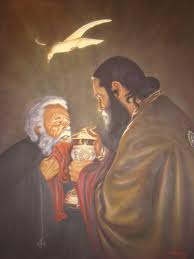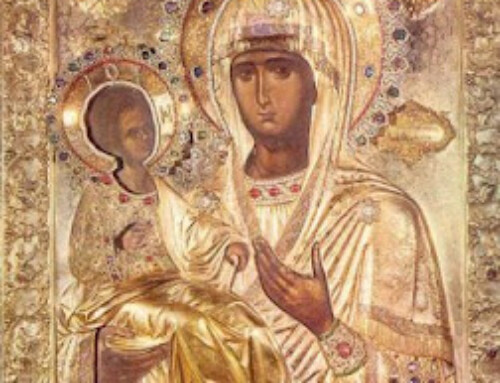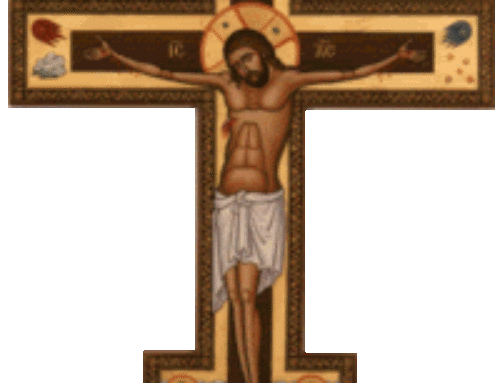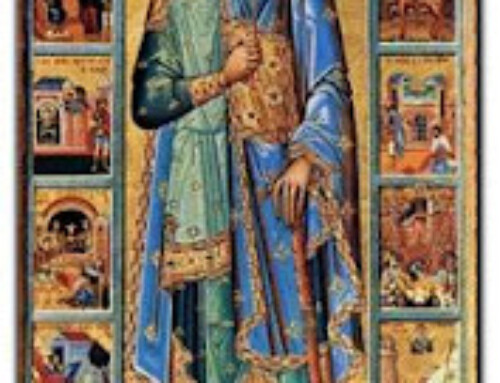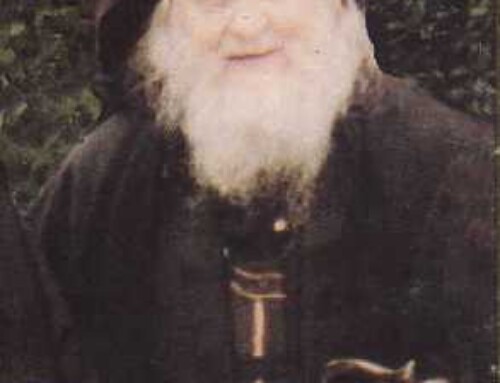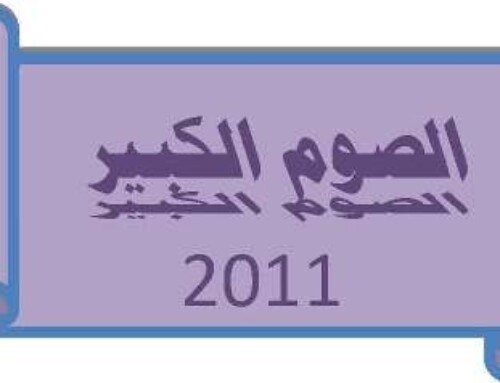Holy Communion and Confession of Metropolitan Erothios Vlachus
Translated into Arabic Father Antoine Melki
Selections from a discussion between students of the Moscow Theological Academy and Metropolitan Erothios Vlachus, in the St. Sergius Lavra.Question: How many times a year should a person eat? Is confession necessarily linked to Holy Communion?
Answer: Absolutely, Communion is not linked to confession. In the ancient church, people were carrying the grace of the Lord within them, that is, they were in a state of enlightenment of the nous and of course they prayed and ate a lot. When some of them sinned, it meant that they lost the grace of God, and in that case they had to stay outside the church, with the catechumens. This is because a person cannot possess the grace of God and deny Christ. When a person sins, especially about the body, and here I am not referring to the carnal relationships within the Christian marriage, this means that he prefers physical pleasure to Christ, and therefore he denies it in practice. These sins return their owners to the rank of penitents, and they must seek to re-acquire the enlightenment of the Nous, in a specific process.We notice in St. Basil the Great and other fathers that there are four degrees of Christians. First, there are the “forgiveness seekers” who sit outside the temple and ask forgiveness from the Christians entering it. Secondly, there are the “benefactors” who remain in the temple only until the readings in the Divine Liturgy, and then are left with the catechumens. Thirdly, there are the “chosen ones” who remain in the church until the end of the Divine Liturgy, but without partaking of the Communion. Fourth, there are the “participants of divine communion.” In other words, when someone committed a sin he had to go through a period of repentance which meant that man had reached the enlightenment of the nous through purification, he had to change his nous, transforming him from dark to enlightened again. Then the bishop reads a blessing and then this person can partake.
That is why I mentioned that confession is not connected to the Absolute in communion. If someone has sinned and needs to confess, they must confess. Some sins, those so-called “incidental” sins, are forgiven by communion and prayer… “Leave us what we owe…” as stated in the Lord’s Prayer.
As for the number of communions annually, this is determined by the spiritual father. That is, we mean Him and open our hearts completely, we tell Him all our problems, we describe our condition, and He gives us the appropriate instructions. The same thing happens here as at the doctor. We visit the doctor and inform him of our pain and he makes a proper diagnosis and prescribes the right medicine and treatment. For example, we may be asked to abstain from certain foods because our system cannot tolerate them, and that we are free to consume them after our recovery.
In this context, we must also look at Holy Communion, because for some it can be light, while it is fire for others. The Holy Fathers say that when we place two substances, namely slime and wax, under the sun, its rays freeze the slime and melt the wax. Although the forces of the sun are the same, the essence of the two substances is different, and for this reason the results differ. In the same way, God and Holy Communion become light for some and fire for others, meaning that some experience it as fire and others experience it as light.
In the churches of the monasteries they depict the scene of the Second Coming. At the top of the icon is the throne, and from it emanates the light that illuminates the saints, while from it springs the river of fire that swallows sinners. Saint Isaac the Syrian says that Hell is the scourge of divine love, a love that the human race cannot comprehend because human beings have impure hearts and are afflicted with an incurable disease. God loves both the righteous and the sinner, but not everyone can experience God in the same way. St. Basil the Great wrote that light has two energies: luminous and incendiary, and on it light shines and burns. He who has two eyes will avoid burning energy and enjoy luminous energy. Those without eyes will accept the burning character of the light. This is what will happen at the second coming: the righteous will perceive the light of God and sinners his fire.
The same will happen exactly in the Divine Liturgy. Some eat and are enlightened, while others eat and are condemned. The Apostle Paul says in his letter to the Corinthians: “For this reason among you many are weak and sick, and many are sleeping” (1 Corinthians 11:30). For this reason, the priest’s job is not to distribute entry cards into the kingdom, but to heal people, so that when they meet God, they have light and not fire.
At this point, we have to clarify the issue of the frequency of handling a healthy person and a sick person, such as a paralyzed person, for example. On the surface, it seems that the sins of a healthy person are more than those of a paralyzed person. But this is not true. It is not true that a healthy person commits more sins than a paralyzed person. Sins are committed with thoughts and desires as well as in the body. One can be healthy and spend all day glorifying God walking in an angelic life, while the other, i.e. the sick, behaves in lack of faith and resentment. What is important is to glorify God, both in health and in sickness.
Transported

